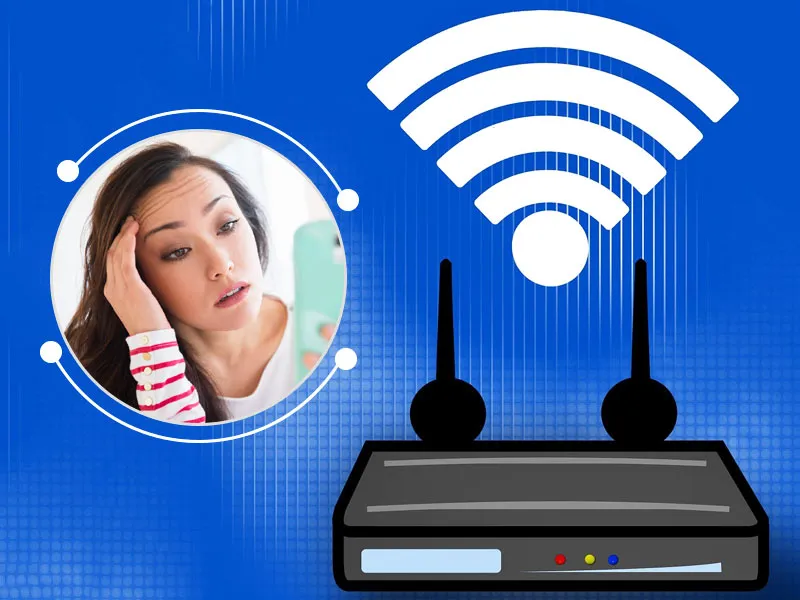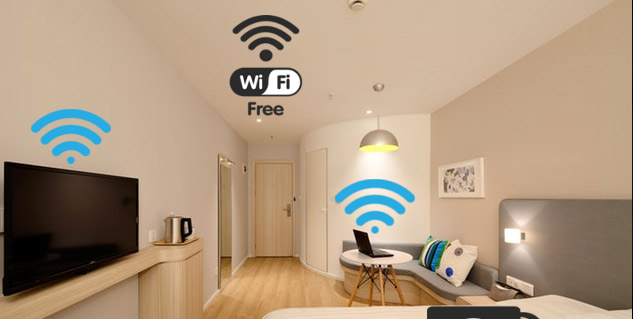
In today's hyper-connected world, it's like we're living in a bubble of invisible waves and these may be the Wi-Fi signals from our routers. You may have heard rumours of shutting off your router at night, not only to conserve some electricity, but also to improve your mental health. But is there anything to this? We spoke to an expert and considered what research says. Here is everything you need to know!
Table of Content:-
CHECK YOUR
MENTAL HEALTH

What Is The Idea Behind Less "Digital Noise"
The basic premise is straightforward: by turning off your Wi-Fi, you're minimising the Electromagnetic Fields (EMFs) around you when you're sleeping. Certain individuals think exposure to these fields on a daily basis can interfere with sleep rhythms, raise stress levels, and even contribute to anxiety. Consider it eliminating "digital noise" when your mind is attempting to relax and recharge.
Expert Weighs In On A Holistic Approach
Our expert, Dr Shrey Kumar Srivastav, General Physician and Senior Consultant at Sharda Hospital in Noida, provides a balanced view. "There isn't strong scientific evidence to suggest direct causality between nighttime Wi-Fi exposure and severe mental health problems, but the habit of switching it off can inadvertently lead to improved well-being among some people," he says. Dr Srivastav adds the following arguments:

1. Cutting Down on Distractions
Disabling the Wi-Fi usually translates to fewer notifications and less urge to look at devices during late hours. This can certainly contribute to a more relaxed bedtime routine and better sleep quality. Healthy sleep is, naturally, vital for mental health.
Also Read: Cancer-Linked Chemicals Detected In Widely Used Skincare and Makeup Products: Study
2. Building a "Digital Detox"
Setting limits with technology, even as basic as shutting off the router, can help create a feeling of control and awareness. This conscious disconnect can alleviate the sensation of always being "on" and enhance general mental calm.
3. The Placebo Effect
For those who feel that Wi-Fi impacts their sleep or anxiety, simply switching it off can have a beneficial psychological impact, even though the actual reduction in EMF is slight.

What Do Studies Say?
Though some individuals claim they feel better after switching off their Wi-Fi, scientific research about the direct effect of low-intensity EMFs from home Wi-Fi on mental health remains few and far between and frequently conflicting. A few have investigated EMF effects on sleep, but results are conflicting and often with exposure levels far higher than those emitted by a standard home Wi-Fi router.
It's worth mentioning that the rates of EMFs emitted by Wi-Fi routers are typically regarded as extremely low by global health bodies and below limits set for safety.
Bottomline
Switching off your Wi-Fi router at night is not a revolutionary solution for mental illness. It might, though, be a tiny, easy action that adds up to a healthier night routine and better digital wellbeing. Therefore, take expert recommendations and build the habit that can be a valuable addition to helping foster a more mindful and less digitally saturated bedroom environment.
Also watch this video
How we keep this article up to date:
We work with experts and keep a close eye on the latest in health and wellness. Whenever there is a new research or helpful information, we update our articles with accurate and useful advice.
Current Version
